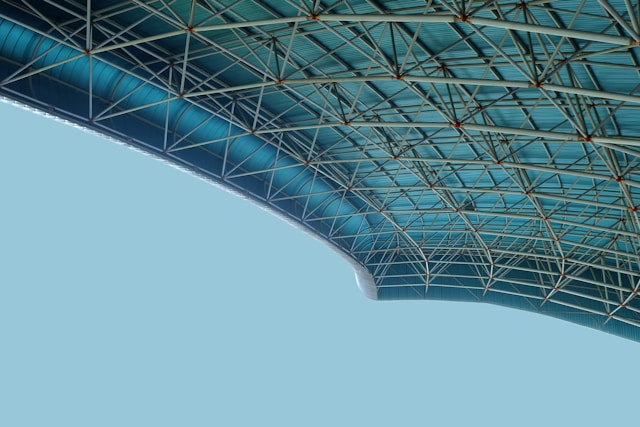Choosing the Right Metal Roof Supplies

Although less common than asphalt shingles or clay tiles, metal roofs are becoming increasingly popular lately. There are several factors that affect their increasing popularity, but the biggest one is their energy efficiency, which becomes increasingly important in an era when we try to conserve as much energy as possible. Moreover, metal roofs are more durable, making them cost-effective in the long run, and have a unique aesthetic appeal.
Still, there can be significant differences in the energy efficiency, longevity, and appearance of various metal roofs. Therefore, it’s crucial to explore all essential aspects before choosing the right material and, subsequently, your metal roof supplier. This article will guide you through all considerations before choosing a metal roof supplier for your project.
Most Widely Used Metal Roofing Materials
The first consideration before choosing a metal roof supplier is to determine which material works best for your project. Widely used roofing metals include aluminum, steel, copper, and zinc.
Aluminum is a popular choice lately because it has a higher natural resistance to corrosion than steel. As such, it’s a better solution for coastal areas, where steel roofs might corrode due to saltwater. It’s lighter, too, and reflects sunlight better, making it more energy-efficient. Aluminum is more expensive to buy, but its energy efficiency makes it a good option long-term.
That said, steel remains a popular option for projects that require strength and durability. It offers excellent protection against extreme weather conditions and can be galvanized (coated with zinc), coated with Galvalume (aluminum-zinc alloy), or painted for protection against rust and corrosion. Steel roofing is also cheaper than its aluminum counterpart.
Although not as widely represented today, copper roofing has a distinct aesthetic appeal, particularly the patina that is created on its surface over time. Still, although highly durable, copper is very expensive. Zinc, on the other side, costs less while offering excellent durability. It also has self-healing properties, i.e., small scratches on the surface will disappear over time. It’s also easily recyclable and requires less energy to be produced.
Choosing the Right Metal Roof Supplier
Choosing the type of metal roof for your project is important, but the supplier you partner with is also an essential factor. That’s because a good supplier will consistently provide you with top-notch materials and offer excellent service and support. These factors are crucial and can significantly affect your projects’ efficiency in the long run.
Therefore, it is highly recommended that you choose a metal roof supplier with a good reputation, i.e., positive testimonials and client reviews. Here, it would be good to ask industry peers for their experience with various metal roof suppliers.
Furthermore, it is essential to partner with a metal roof supplier that has a wide range of roofing materials. You certainly don’t want to source them from different suppliers, as that can amp up the overall cost. Buying from only one supplier is not only convenient but also saves money in the long run.
In addition, good customer service will study your project thoroughly and recommend the best type of metal roofing while also providing technical support during the project. Responsiveness is key here, as you certainly don’t want your project to pause at any moment.
Maintenance and Longevity
Maintenance plays a huge role in the longevity of metal roofing and, subsequently, the long-term costs. Thus, regular inspections are crucial for identifying potential issues before they become major problems. Cleaning and timely repairs are also crucial in keeping metal roofs healthy for longer. It’s recommended to inspect metal roofs every six months, ideally in the spring and fall or after severe weather events.
Metal roof suppliers can assist you in these processes by providing maintenance packages that include routine inspections, cleaning, and minor repairs. Moreover, a good supplier will have professionals onboard who will help you with inspections and identify issues like loose fasteners, rust spots, and sealant failures that you might not notice. It would also be very helpful if your metal roof supplier could carry out quality repairs efficiently, as this will save you time and money.
In addition, your metal roof supplier should provide you with all the necessary parts for repair and maintenance. These parts should be compatible with your roof and of high quality, ensuring the roof always stays in its optimal condition.
Warranties are another significant consideration when it comes to maintenance. Thus, it is highly recommended that you choose a metal roof supplier that offers long warranties that will cover certain repair costs.

 Tech Steel & Materials
Tech Steel & Materials
Comments are closed